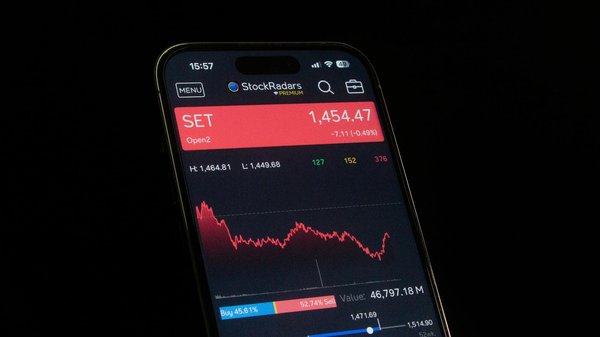Navigate the world of finance with confidence
Evergreen Holding brings you comprehensive guides, market analyses, and expert insights on banking, real estate, credits, and insurance. Stay informed with trusted resources that help you understand the ever-changing financial landscape.

Explore our comprehensive categories
From banking essentials to property market trends, find the insights you need
banking
Banking services and savings
View articles →credits
Credits, loans and financing
View articles →finance
Investment and wealth management
View articles →insurance
Insurance and protection
View articles →news
Financial and property news
View articles →real estate
Property market and trends
View articles →
Why readers choose Evergreen Holding
We deliver reliable, up-to-date information across all major financial sectors, helping you make informed decisions through carefully researched content.
- Daily updates on market trends and financial news
- Expert analyses from industry professionals
- Practical guides for banking and credit matters
- Comprehensive property market insights
Latest articles
Our recent publications
Find your perfect property with a top spanish real estate agency
Unlocking defi: your guide to crypto airdrops and more
Check live conditions with the meribel mottaret webcam
How can UK residents capitalize on low interest rates to refinance their homes?
How does the Help to Buy scheme influence the UK housing market and affordability?
What are the latest changes in UK planning permission laws for home extensions and renovations?
How to navigate the complexities of commercial property finance for UK-based entrepreneurs?
What are the best practices for UK landlords to handle rental arrears during economic uncertainty?
What are the potential pitfalls of joint mortgages for unmarried couples in the UK?
What are the latest trends in the UK's luxury property market and how to capitalize on them?
What insurance policies are essential for UK property owners and why?
What steps should be taken to secure a commercial property loan in the UK?
How to Safeguard Your UK Property Against Squatters?
What Are the Key Factors That Influence Property Valuation in London?
What Are the Tax Implications for Converting a Residential Property into a Holiday Let?
How to Secure a Mortgage as a Self-Employed Individual in the UK?
How Will the HS2 Rail Project Influence Property Prices in Affected Regions?
Is the Northern Powerhouse Still a Viable Investment Opportunity for Property Investors?
Can overseas investors take advantage of the UK's property market in a post-pandemic landscape?
Essential Guide for Homebuyers: Evaluating Flood Risk in Thames Valley Properties Before You Buy
Is it worth buying a property near a planned HS2 station?
Stay ahead of the financial curve
Explore hundreds of articles, guides, and analyses covering every aspect of finance and property. From beginner basics to advanced market insights, discover content that matches your interests.
Rejoindre →Frequently Asked Questions
What topics does Evergreen Holding cover?
We cover six main categories: banking, credits, finance, insurance, news, and real estate. Each category features regularly updated articles, guides, and market analyses written by contributors with expertise in their respective fields.
How often is new content published?
We publish new articles daily across our various categories. Our editorial calendar ensures a steady stream of fresh content, including breaking financial news, in-depth analyses, and comprehensive guides on complex topics.
Is the content suitable for beginners?
Absolutely. We create content for all knowledge levels, from those just starting to explore financial topics to experienced professionals seeking advanced insights. Each article is clearly labeled with its complexity level to help you find appropriate resources.
Can I suggest topics for future articles?
Yes, we welcome reader suggestions. While we maintain an independent editorial approach, we regularly review reader feedback and topic requests to ensure we're covering the subjects that matter most to our community.